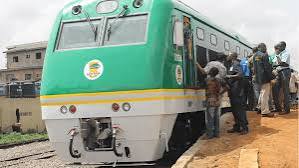
LAGOS-KANO, EASTERN RAIL LINES TO BENEFIT FROM RENEWED HOPE INFRASTRUCTURE FUND – ONANUGA
The Federal Government intends to use the Renewed Hope Infrastructure Fund, which was recently approved by the Federal Executive Council (FEC), to finance the Lagos-Kano and Eastern Rail Lines, along with other key infrastructure projects.
This is contained a statement signed by Bayo Onanuga, Special Adviser to the President on Information & Strategy, where he explained in detail what the Renewed Hope Infrastructure Fund entails.
According to the statement, Renewed Hope Infrastructure Fund which was unanimously approved by the Federal Executive Council on Monday, is an initiative by the President Bola Tinubu’s administration to finance critical national projects that will accelerate infrastructure and economic development in all parts of the country, particularly in road, rail construction, agriculture, aviation, education, health, energy and technology.
“Among the projects being targeted are major road networks, such as the Lagos-Calabar Coastal highway, Sokoto-Badagry Expressway, Lagos-Kano and Eastern Rail Lines. Ports and aviation facilities will be modernized,” the statement read in part.
Furthermore, the Fund will focus on enhancing the nation’s agricultural value chain to boost food security, as well help create employment opportunities and promote exports, among other things.
The statement said that Nigeria needs $35 billion annually until 2040 to cover its infrastructure expenditure.
This necessitated the establishment of the Presidential Infrastructure Development Fund (PIDF) by former President Muhammadu Buhari, with the National Wealth Authority playing a vital role, to bridge the infrastructural financing gap during his tenure.
While the PIDF contributed to the realization of critical projects, such as the Second Niger Bridge and the Lagos-Ibadan Expressway, it encountered funding constraints and delays in project execution, leading to increased material costs and bureaucratic and institutional challenges.
These challenges faced by the PIDF are what the Renewed Hope Infrastructure Development Fund (RHIDF) aims to overcome, according to Onanuga’s statement.
The initial capital of the RHIDF is N20 trillion (about $14 billion), with investment capital expected from pension funds, concessionary loans, insurance companies, sovereign wealth funds, private sector arms of multilateral development institutions, and bilateral private sector investors.
Other financing sources include individual investors, such as Diaspora Nigerians, endowments, and equity funds.The RHIDF will be managed by a Director-General and will reside within the Presidency, aiming to streamline the bureaucratic processes that usually delay the implementation of projects.
 Premium News
Premium News